If you are a student or research professional, you have to go through lengthy PDF articles to gather data for your projects. It has a negative effect on your productivity and wastes the time that you can spend on other essential tasks. To save wastage of time and effort, you can utilize AI to extract data from PDFs. In this way, you will not need to read the entire article to get the required information.
Other than that, marketing professionals can extract data from complex tables and charts to evaluate the results they are conveying. In this article, we will talk about different ways through which you can extract data with the help of the AI-powered UPDF.
Method 1. How to Use AI to Extract Data from PDF by Summarizing?
Students or research professionals have to go through lengthy articles to extract specific information for research purposes. With its advanced AI summarization feature, UPDF AI can solve this issue by providing concise summaries that will help you extract data. In addition, it will help you extract information from lengthy and complex tables to assist you in accounting and marketing tasks.
You just have to prompt AI to extract data from PDF or other large databases. Additionally, you can command UPDF AI to explain the extracted information for better understanding. It even has the capability to translate the extracted data into different languages. The following steps will help you perform this AI PDF extraction task via UPDF AI:
Step 1. Import File to Summarize Data for Extraction
First, you have to click on the "Free Download" button given below to add this AI PDF data extraction tool to your workflow. Afterward, launch UPDF on your device and hit the "Open File" button to import the file for data extraction. Press the "UPDF AI" icon on the right toolbar and access the "Ask PDF" mode to start data extraction.
Windows • macOS • iOS • Android 100% secure
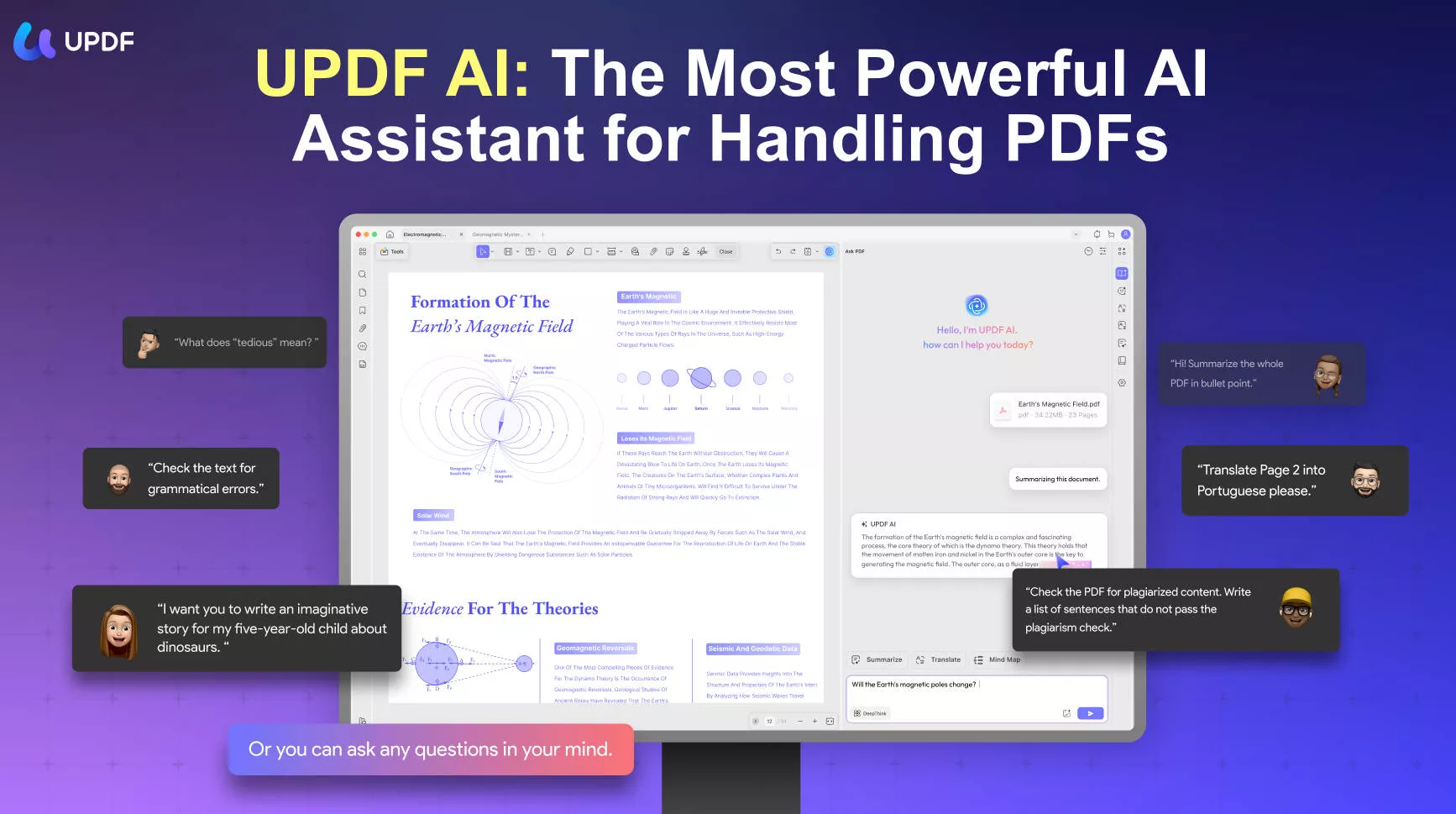
Step 2. Access Ask PDF Mode to Summarize Specific Page
Now, click the "Get Started" button and then command AI to summarize any specific page you want. You can write prompts such as "Summarize the information given on page 2" and hit the "Send" icon to get the results.
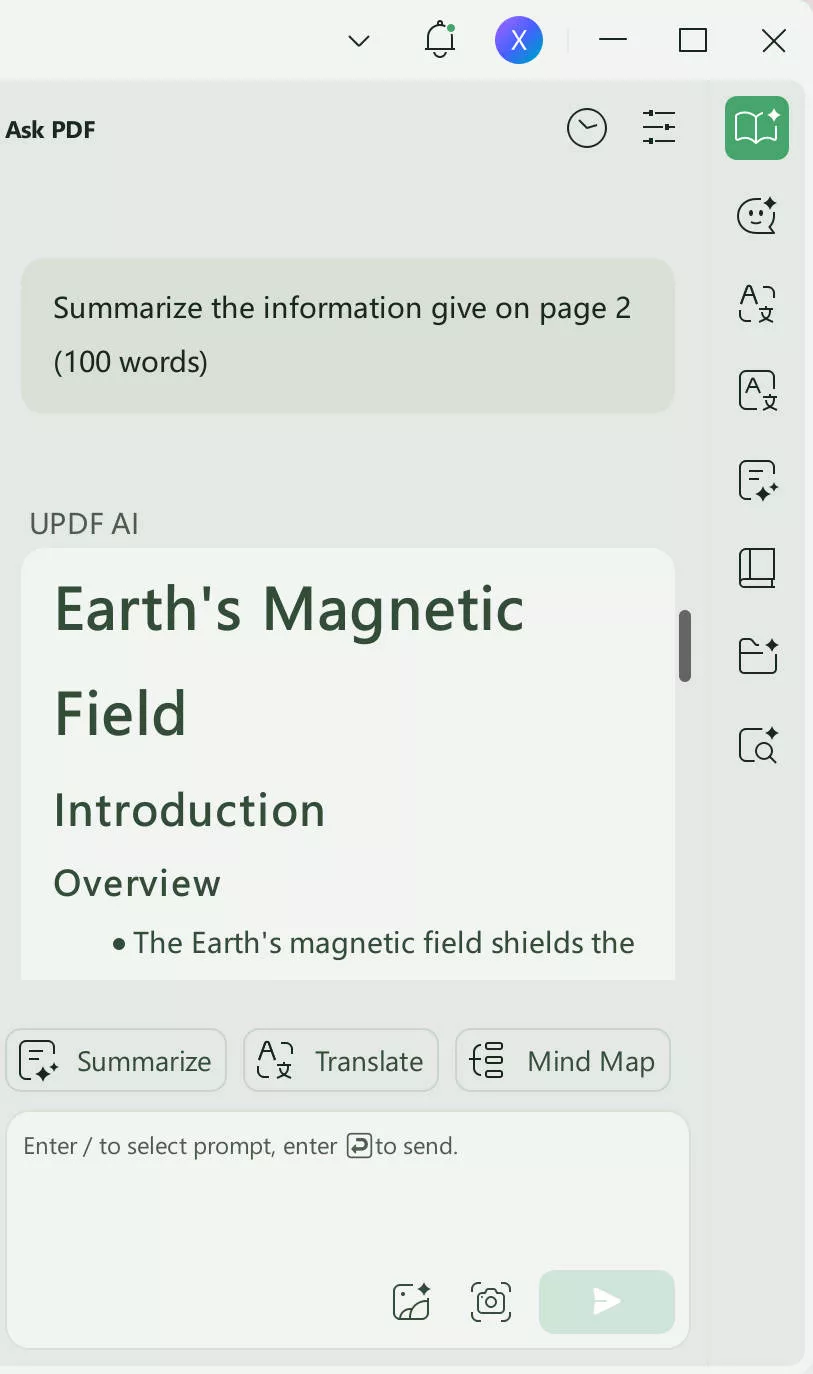
Step 3. Extract Specific Information from the PDF
Alternatively, you can write a prompt such as, "Extract and summarize all the item details data from this PDF." Hit the "Send" button, and UPDF AI will summarize information about the relevant command.
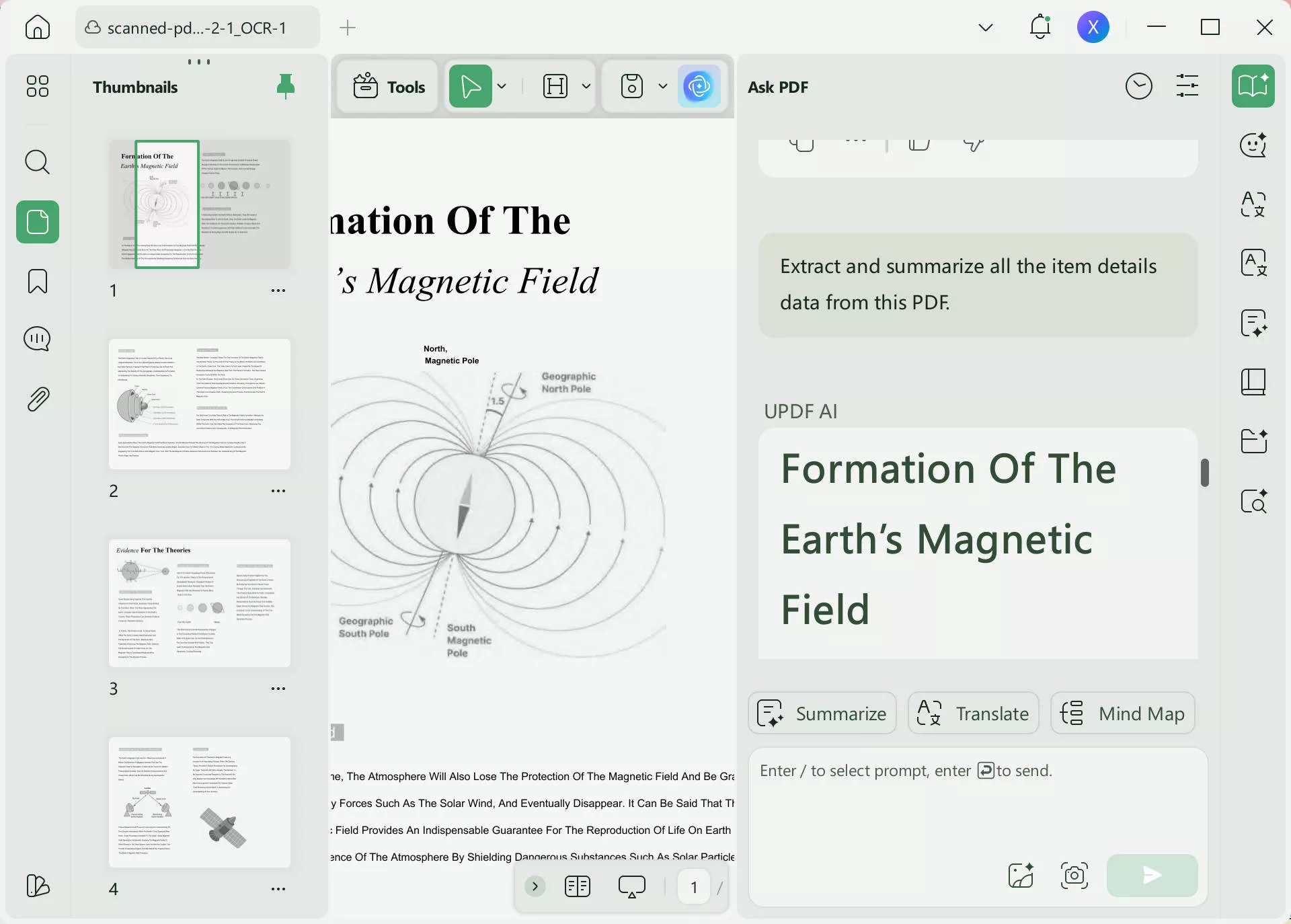
Prompts You Can Use to Extract Facts and Data from PDF
UPDF AI will further help you extract numerical data from the PDF document if you use the right prompts. Take assistance from the following prompts to get better at AI data extraction:
- Extract and summarize the numerical data related to sales figures from the PDF document.
- What are the key statistical trends or patterns in the financial data presented in the PDF?
- Can you provide a breakdown of the numerical data regarding customer demographics mentioned in the PDF?
- Extract numerical data related to project timelines and deadlines from the PDF.
- Summarize the numerical data on employee performance metrics found in the PDF.
- Provide a summary of any percentage changes or growth rates mentioned in the PDF document.
If you want to get answers to these prompts, hit the "Free Download" button and access UPDF AI to interact with this intelligent chatbot.
Windows • macOS • iOS • Android 100% secure
Method 2. How to Use AI to Extract Text from Scanned PDFs?
While doing marketing research, you often come across data and statistics in the form of scanned PDFs or pictures. It is not possible to extract data from these documents directly. For this purpose, you can use the innovative OCR technology of UPDF to convert these scanned documents into edited files.
You can retain the layout and formatting of the charts and tables present in the files using UPDF's AI-powered OCR to extract data from PDF. UPDF also allows you to set the image resolution and page range while OCR converts files for data extraction. You have to follow the following set of instructions to undertake this process:
Step 1. Access the OCR Option
To begin this AI PDF data extraction process, launch UPDF on your device and import the scanned document from which you want to extract information. Now, click on the "OCR" icon to access the OCR conversion side window.
Step 2. Perform OCR for AI PDF Extraction
On this new window, select your preferred layout setting and document language. Then, set the image resolution and custom page range to personalize this data extraction process. Finally, hit the "Convert" button to complete this conversion for text extraction.
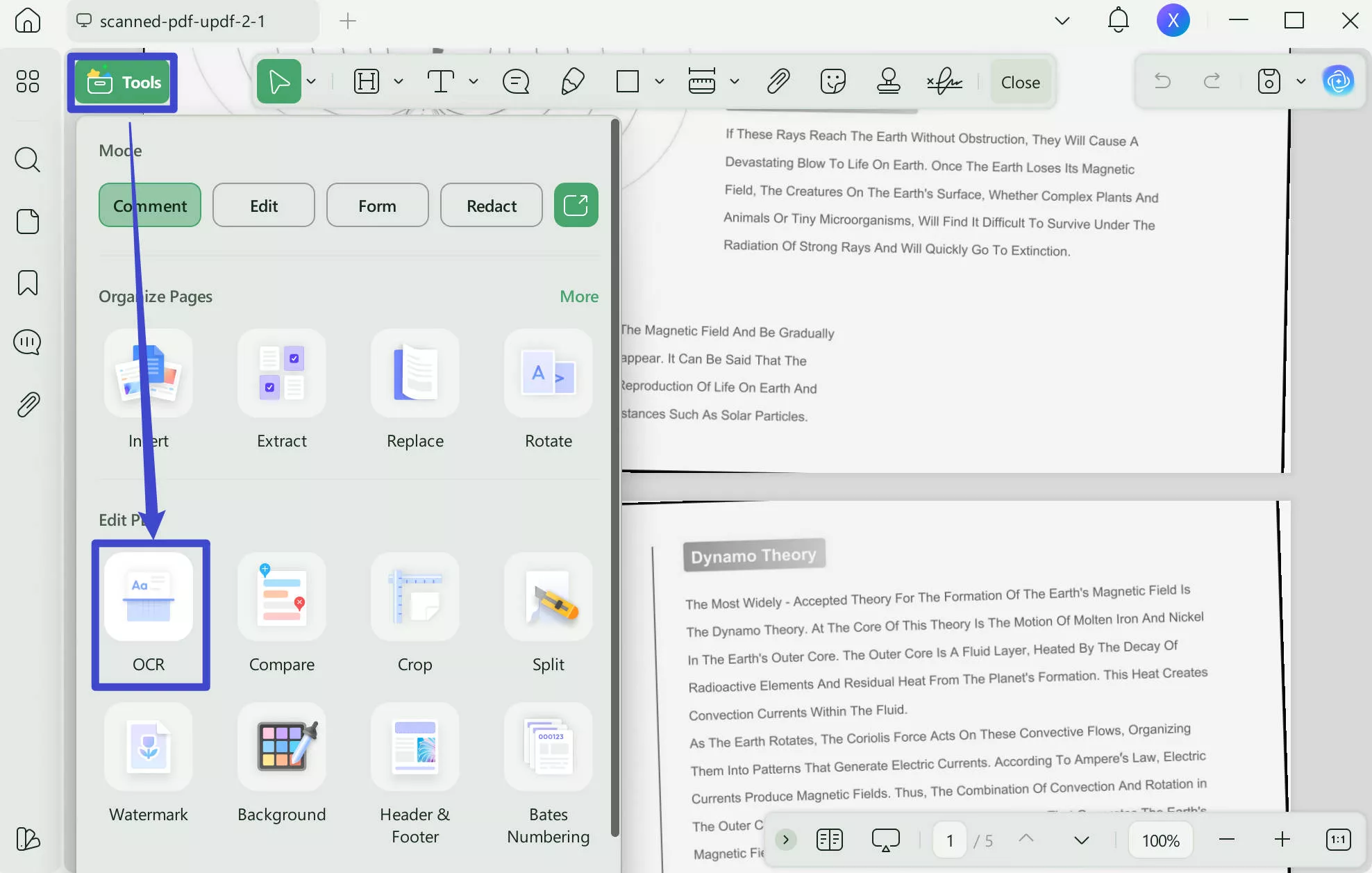
Step 3. Extract Text from OCR Converted File
After successfully converting your scanned file, you can now copy text from it for data extraction. To do so, you can go to the "Reader" mode and select the text you want to extract. Then, a pop-up menu will appear from where you can simply click on the "Copy Text" icon to extract this information.
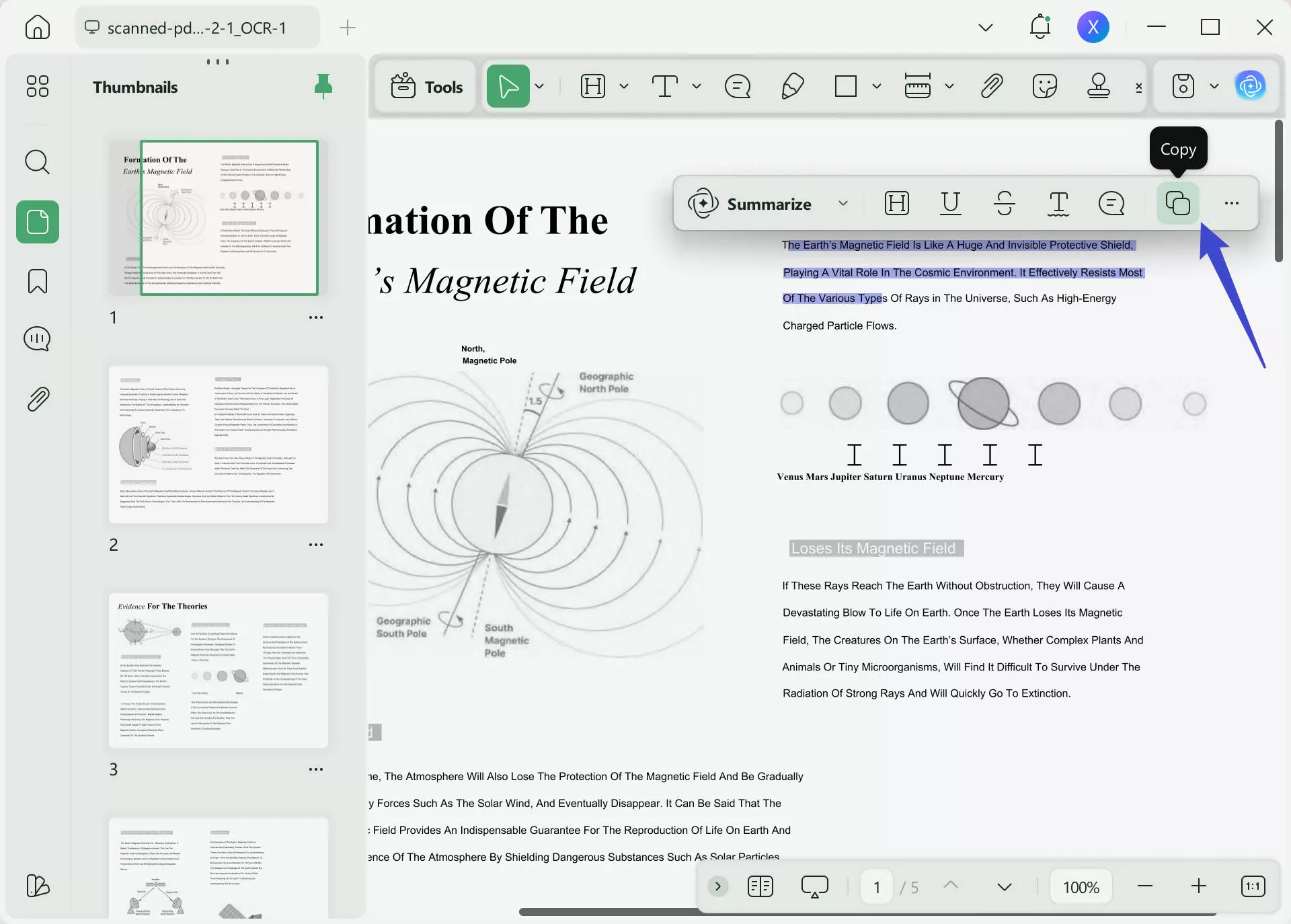
In addition, you can also use UPDF AI to extract text from PDFs by utilizing the summarization prompt, as explained in the above method.
Also Read: How to Easily Extract Emails from PDF (2 Effective Methods)
Method 3. How to Use AI to Extract Data from PDF Forms?
If you want to extract data from PDF form, you can go for the PDF form to FDF conversion for this purpose. An FDF file is a text-based record generated by extracting details from the form fields in a PDF file, excluding the form's structure, to create a more streamlined file.
Moreover, you can use UPDF powered by AI to extract data from PDF for seamless integration with other database software. Anyone can easily extract form data by following the straightforward instructions given below:
Step 1. Access the Prepare Form Feature
Start the AI PDF extraction process by importing your PDF form into UPDF. After importing the PDF form, hit the "Form" icon in Tools from the left toolbar to access different features for form editing.
Step 2: Extract Form Data
Now, go to the top-right and click the "More" drop-down menu to access additional options. On this menu, press the "Export Data (.fdf)" button to extract the data present in this form.
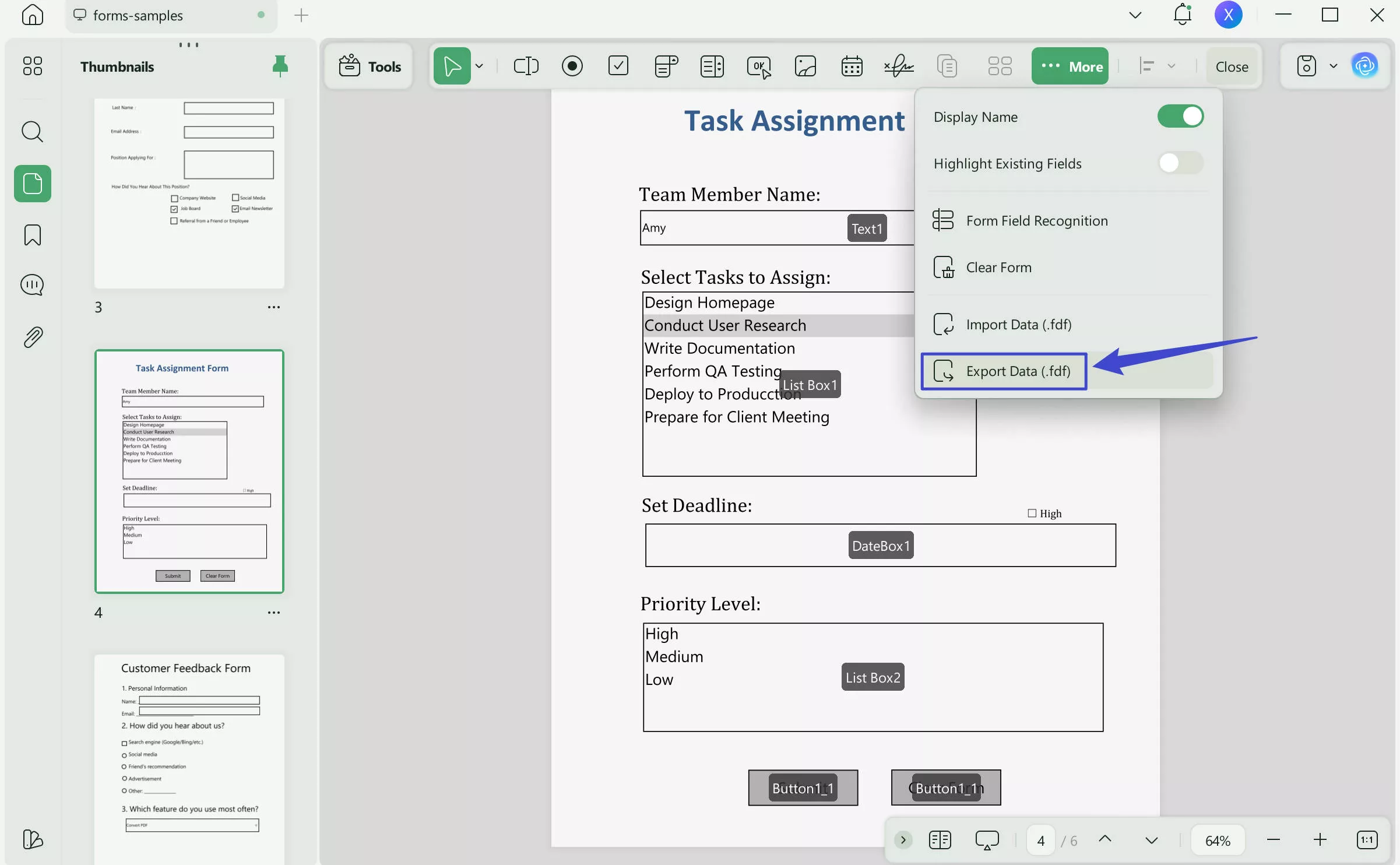
To get your hands on this multi-functional PDF form data extraction tool, click the "Free Download" button. You can further upgrade to the UPDF Pro version to carry out limitless conversions.
Windows • macOS • iOS • Android 100% secure
Method 4. How to Use AI to Extract Data from PDF to Excel?
You may come across a situation where your PDFs contain data in the form of tables and charts. In such situations, PDF to Excel conversion is a better option to handle the complex layouts of graphs and tables. UPDF provides you with an opportunity to carry out this operation with its AI-powered converter. Moreover, you can retain the complex formatting of PDF data while converting it to the Excel format.
UPDF offers an ideal solution to address this AI PDF data extraction challenge with the help of its "Export PDF" functionality. Let's explore how to convert a PDF to Excel without compromising the formatting using this feature:
Step 1: Access the Export PDF Feature
First and foremost, import the PDF file you want to convert to an Excel sheet on the UPDF main interface. Now, hit the "Tools" icon.
Step 2: Change the Conversion Settings
From these conversion options, click on the "Excel" format to access the PDF to Excel conversion settings. On this settings window, select one of the given options to set the layout of the Excel file according to your needs.
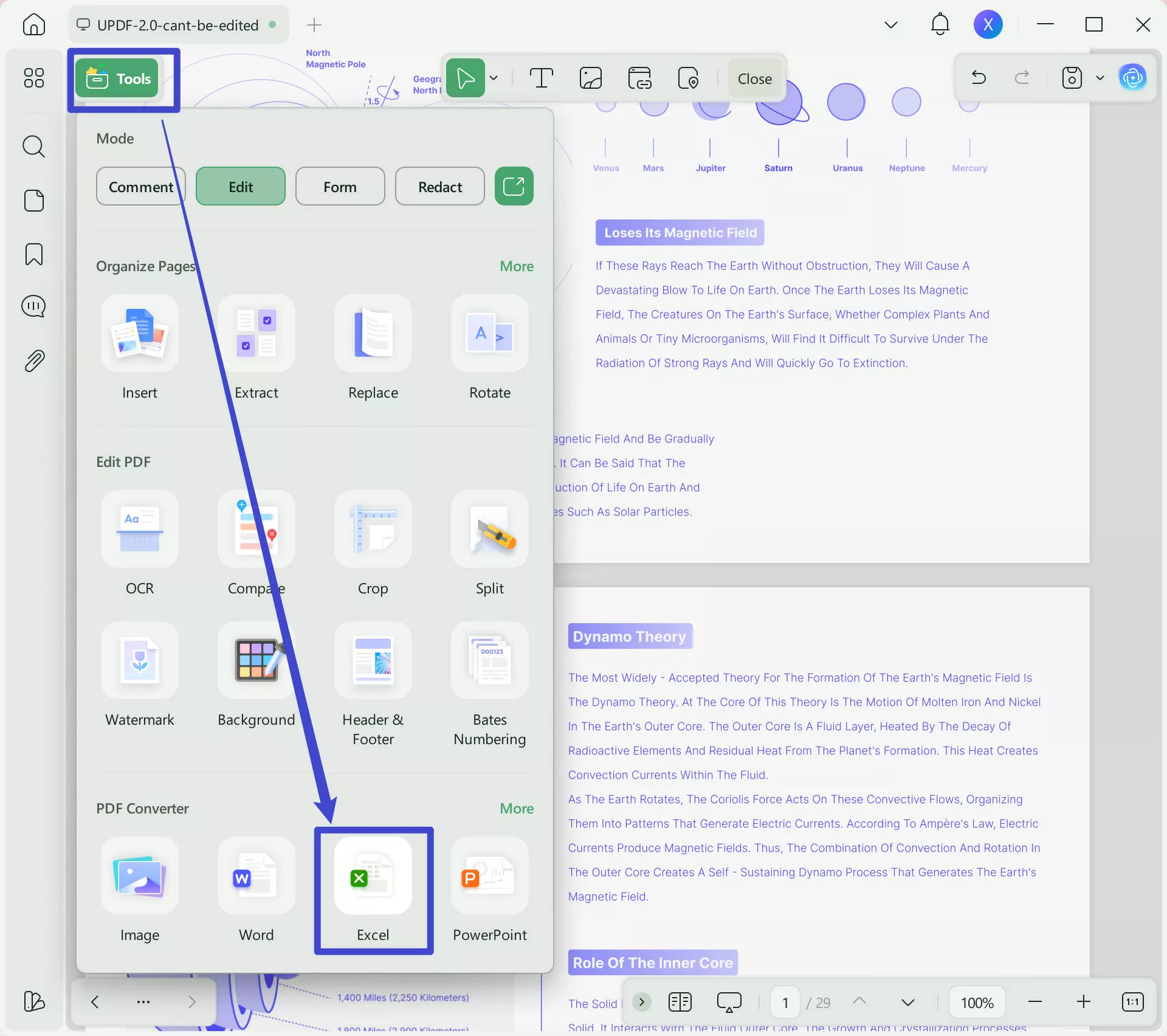
Step 3: Export Data to Excel Sheet
Now, select the language of the document and specific page range to convert only desired PDF pages. Finally, press the "Apply" button to perform this AI PDF data extraction successfully.
Part 5. FAQs about AI PDF Data Extraction
Q1. Can AI extract data from a PDF?
Yes, AI can extract data from a PDF by utilizing techniques such as natural language processing and optical character recognition. These technologies enable automated extraction of text, tables, and other information from PDF documents. Various AI-powered tools like UPDF are designed for efficient data extraction from PDFs.
Q2. Can ChatGPT extract data from PDF?
If you are a Premium User, GPT-4 allows you to upload PDFs and other documents for data extraction. You can prompt AI to summarize or extract any information from within the PDF document. However, people who use ChatGPT for free cannot take advantage of this AI PDF extraction.
Q3. Which is the best AI tool to extract data?
UPDF is the best tool to extract data with the help of the AI-integrated system. With its "Ask PDF" and "Chat PDF" modes, you can simply prompt AI to extract data from uploaded articles or pasted data. In addition to that, it has other features that will allow you to extract data from scanned documents and PDF forms.
Conclusion
As discussed throughout the article, AI proves to be instrumental in extracting important information from lengthy PDFs within a few seconds. With this advanced technology, you don't have to waste your time going over useless information to find the right one. For this purpose, UPDF is the best AI PDF extraction feature to streamline your research process.
If you also want to use AI to extract data from PDF, hit the "Free Download" button below to get your hands on UPDF AI. Moreover, choose to upgrade to the AI paid version to have a limitless conversation with this AI PDF extractor.
Windows • macOS • iOS • Android 100% secure
 UPDF
UPDF
 UPDF for Windows
UPDF for Windows UPDF for Mac
UPDF for Mac UPDF for iPhone/iPad
UPDF for iPhone/iPad UPDF for Android
UPDF for Android UPDF AI Online
UPDF AI Online UPDF Sign
UPDF Sign Edit PDF
Edit PDF Annotate PDF
Annotate PDF Create PDF
Create PDF PDF Form
PDF Form Edit links
Edit links Convert PDF
Convert PDF OCR
OCR PDF to Word
PDF to Word PDF to Image
PDF to Image PDF to Excel
PDF to Excel Organize PDF
Organize PDF Merge PDF
Merge PDF Split PDF
Split PDF Crop PDF
Crop PDF Rotate PDF
Rotate PDF Protect PDF
Protect PDF Sign PDF
Sign PDF Redact PDF
Redact PDF Sanitize PDF
Sanitize PDF Remove Security
Remove Security Read PDF
Read PDF UPDF Cloud
UPDF Cloud Compress PDF
Compress PDF Print PDF
Print PDF Batch Process
Batch Process About UPDF AI
About UPDF AI UPDF AI Solutions
UPDF AI Solutions AI User Guide
AI User Guide FAQ about UPDF AI
FAQ about UPDF AI Summarize PDF
Summarize PDF Translate PDF
Translate PDF Chat with PDF
Chat with PDF Chat with AI
Chat with AI Chat with image
Chat with image PDF to Mind Map
PDF to Mind Map Explain PDF
Explain PDF Scholar Research
Scholar Research Paper Search
Paper Search AI Proofreader
AI Proofreader AI Writer
AI Writer AI Homework Helper
AI Homework Helper AI Quiz Generator
AI Quiz Generator AI Math Solver
AI Math Solver PDF to Word
PDF to Word PDF to Excel
PDF to Excel PDF to PowerPoint
PDF to PowerPoint User Guide
User Guide UPDF Tricks
UPDF Tricks FAQs
FAQs UPDF Reviews
UPDF Reviews Download Center
Download Center Blog
Blog Newsroom
Newsroom Tech Spec
Tech Spec Updates
Updates UPDF vs. Adobe Acrobat
UPDF vs. Adobe Acrobat UPDF vs. Foxit
UPDF vs. Foxit UPDF vs. PDF Expert
UPDF vs. PDF Expert

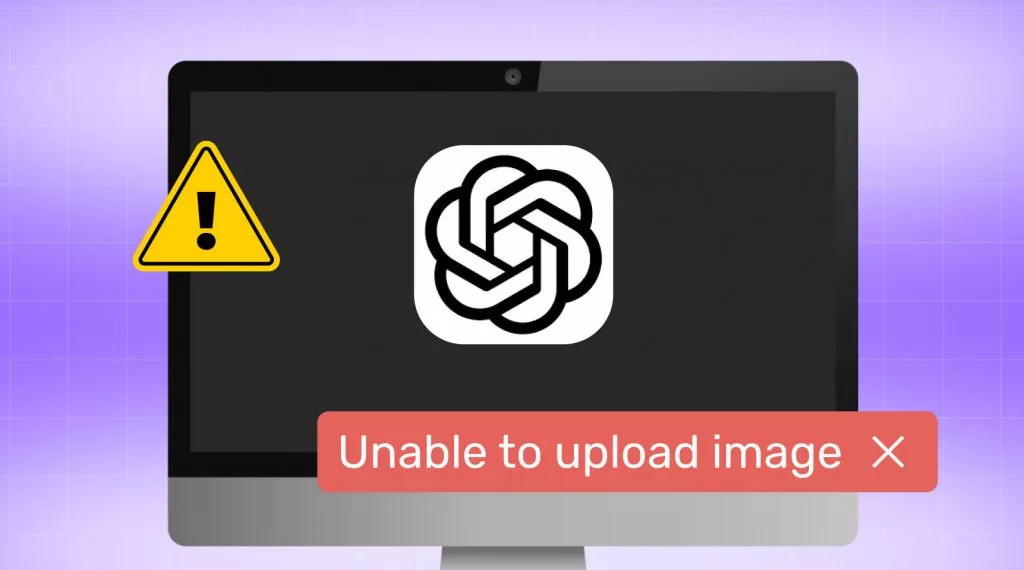
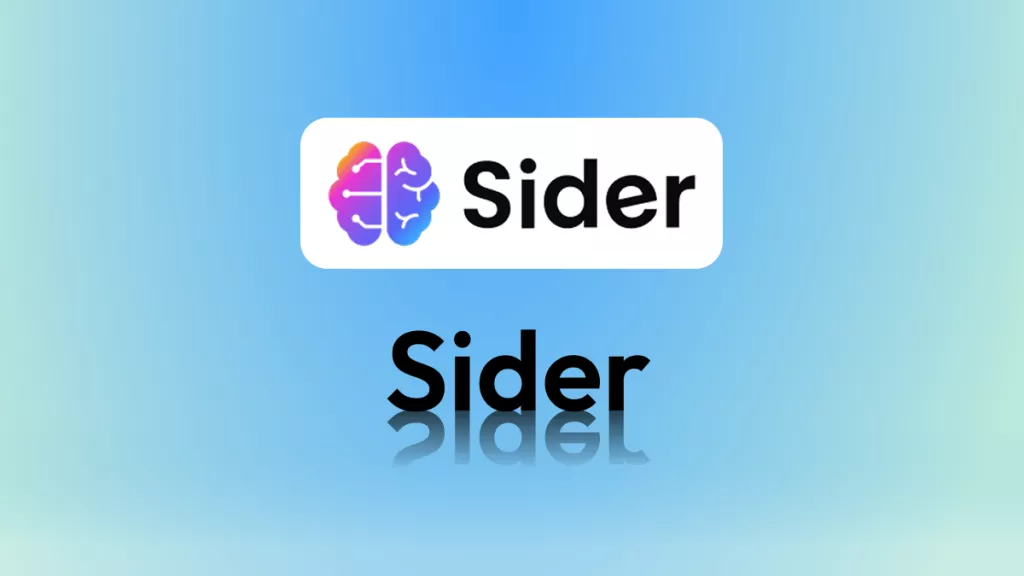

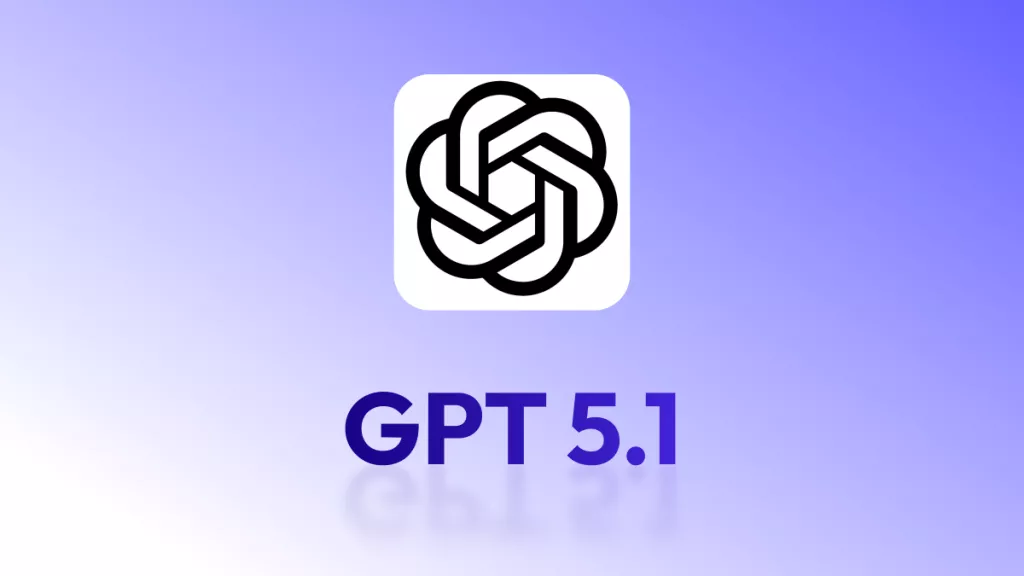



 Enola Miller
Enola Miller 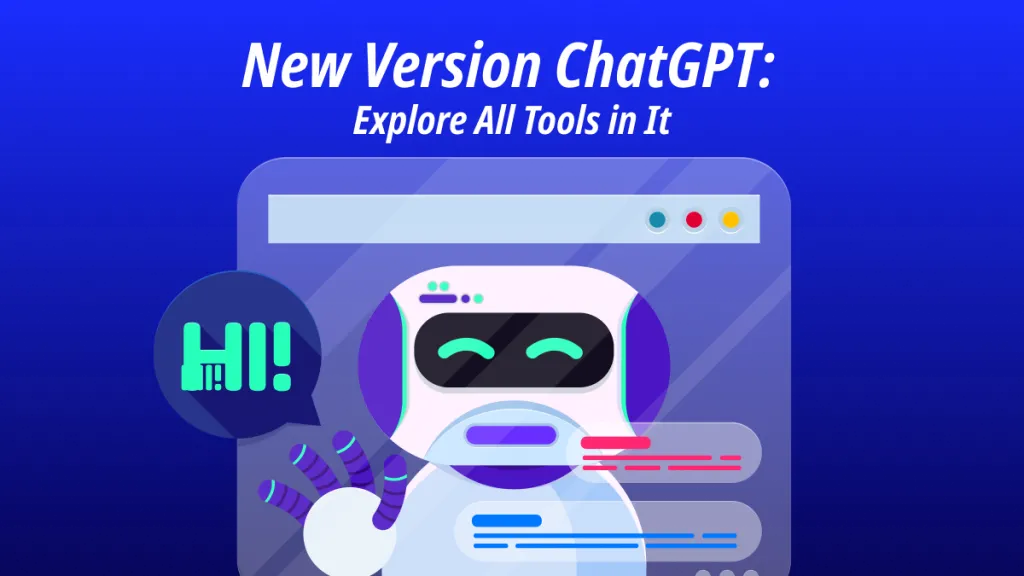
 Grace Curry
Grace Curry 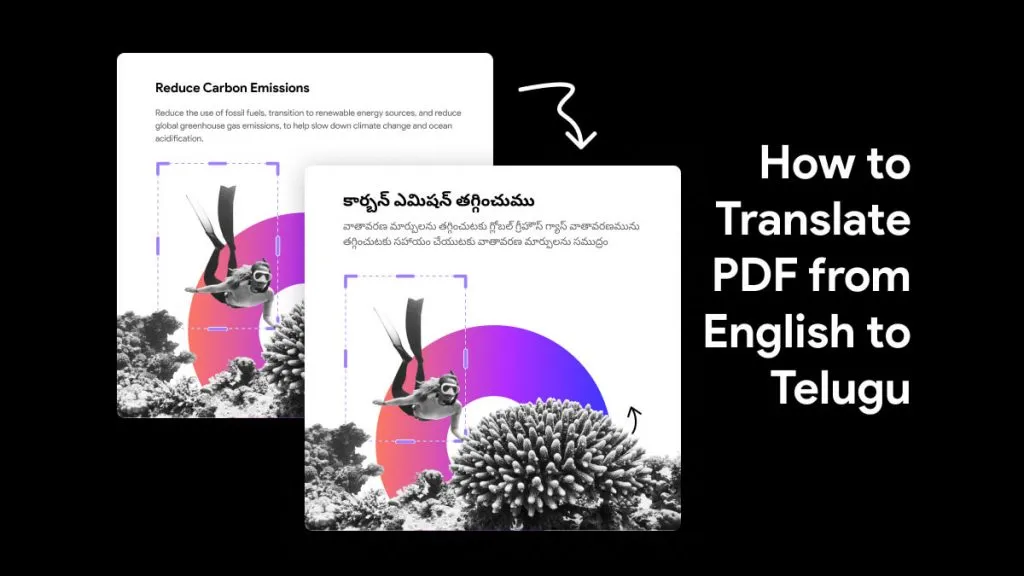
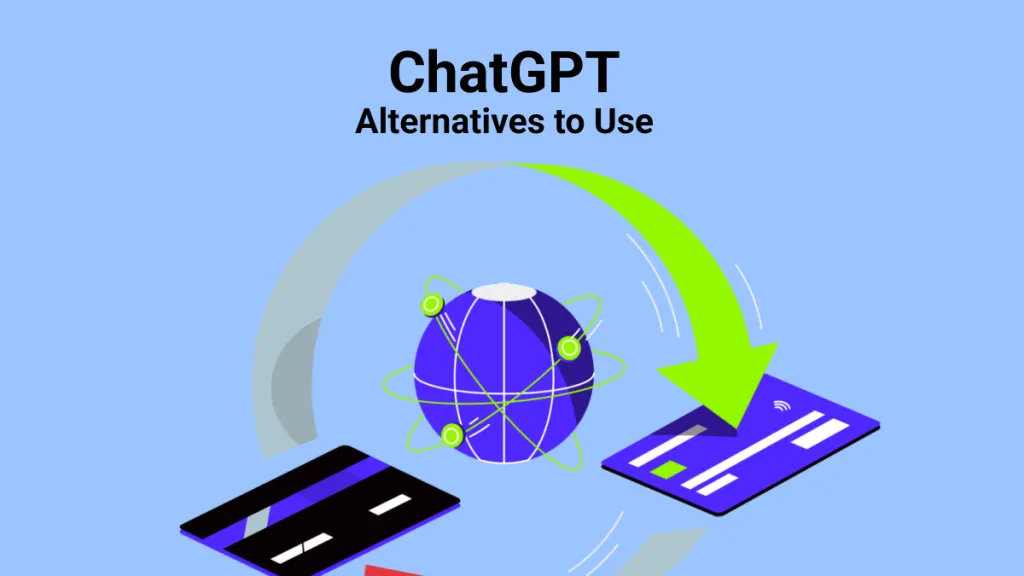
 Enrica Taylor
Enrica Taylor 
 Lizzy Lozano
Lizzy Lozano